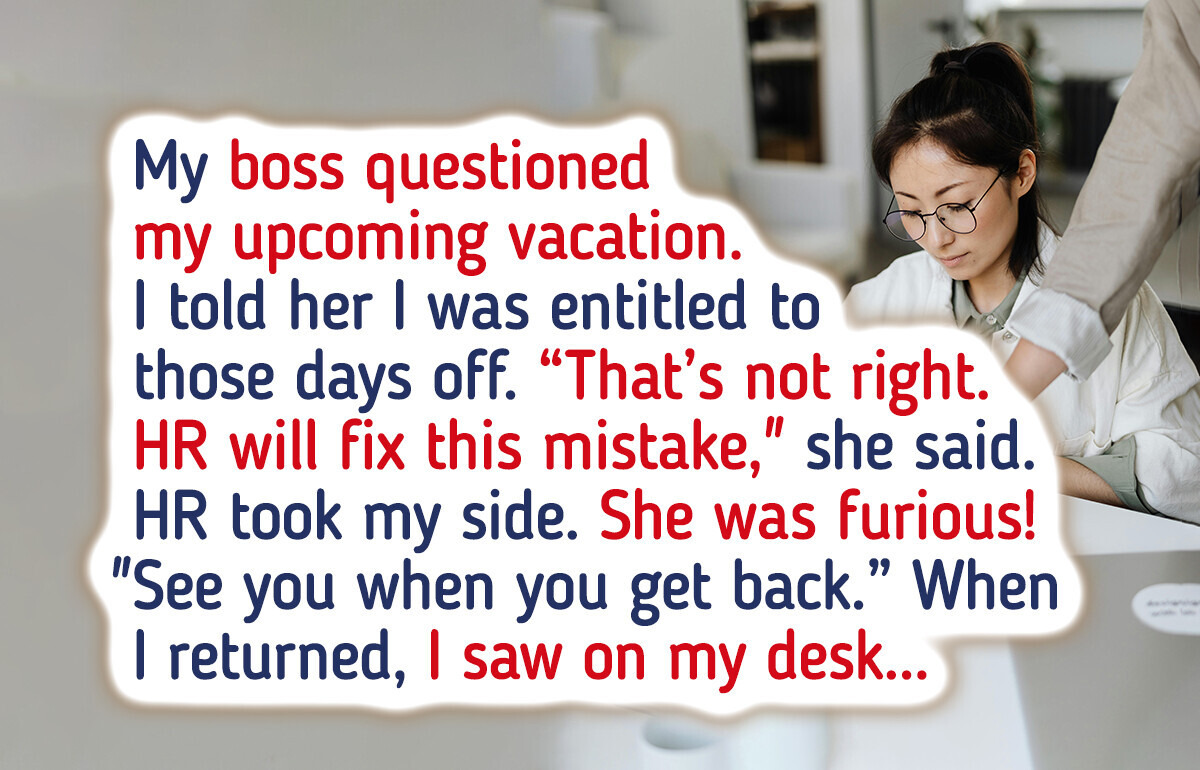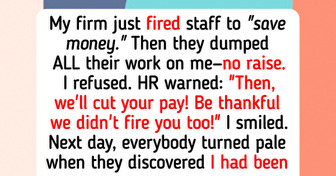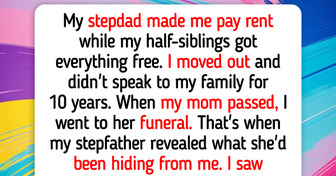I Refuse to Let My Irresponsible Stepdaughter Exploit Her Dad


Finding yourself in conflict with your boss can be really uncomfortable and stressful, but it is also very common. When disagreements arise and work loyalty is tested, relationships can become strained and corporate mediators might need to step in. When they do, who do you choose? Them or yourself? Or is it even a choice to begin with?
One of our readers reached out to us. Let’s take a look at her story.
My boss questioned my upcoming vacation. I told her I was entitled to those days off. “That’s not right. HR will fix this mistake,” she said. HR took my side. She was furious! “See you when you get back.”
When I returned, I saw on my desk a note telling me to report to HR immediately because I had a meeting with them. I was nervous—after all, my boss had more power than I did.
They told me to stay calm (which I definitely couldn’t) and started asking me all sorts of questions about my boss. They wanted to know exactly what words she used when talking about my vacation, how she interacted with me after HR’s response, whether she questioned my work, if she pressured me to stay past my hours, and a bunch of other things.
I was a little hesitant, but I decided to be honest.
HR went to talk to other colleagues and is now conducting an evaluation of my boss. I’m still really scared of retaliation, especially since she’s still my boss, and I don’t think that will change. I can see that my colleagues are also scared.
Was I stupid for being honest with HR? I felt so wronged by her behavior that it seemed like the only thing to do.
Thank you for sharing your story. Here’s our feedback.
You did the right thing by speaking up against an injustice that you were going through. Your manager was in the wrong for questioning authorized vacation and attempting to overrule HR’s decision. Such conduct indicates a more serious problem, and HR probably initiated the evaluation in the first place because they noticed a problem too.
That being said, just because HR supported you, it doesn’t mean your boss’s worries were unfounded; it’s possible that she had a valid reason to question you, though you may not know what. Despite feeling like she was being unjust, to presume that she had bad intentions is to judge her without considering her position in the matter.
Being a manager is hard, it involves carefully balancing between the demands of the business and the expectations of employees. It might be a powerful position to be in, but it’s also one with a great responsibility, which is why systems like HR are put into place to ensure fair treatment is instilled in the workplace.
Your supervisor still has authority over you and your co-workers despite HR’s involvement, so it would be best for you to be professional and commit yourself to completing your tasks rather than concentrating on fear. Communicate with your manager in a courteous and open manner to show her that you recognize the dynamics of the job.
But if retaliation is something you’re really concerned about, there are some steps that you can take to protect yourself:
If you have a good work ethic and demonstrate that your complaints were procedural rather than personal, retaliation is rare. Even though your boss may have responded emotionally at the time, she may eventually admire your honesty if you are willing to work it out.
You should be proud of yourself for defending your well-being; you deserve to work in a fair and respectful environment, and hopefully, HR’s involvement will result in such an environment. Maintain the good work ethic that you have, remain respectful towards your boss and while you do your job and allow HR to do theirs, check out Jessica’s story and see how you can relate to her workplace injustice.











